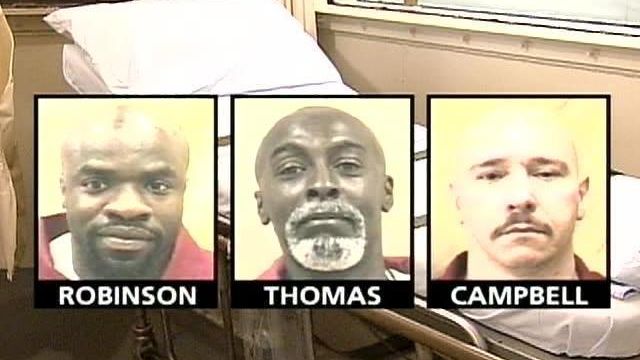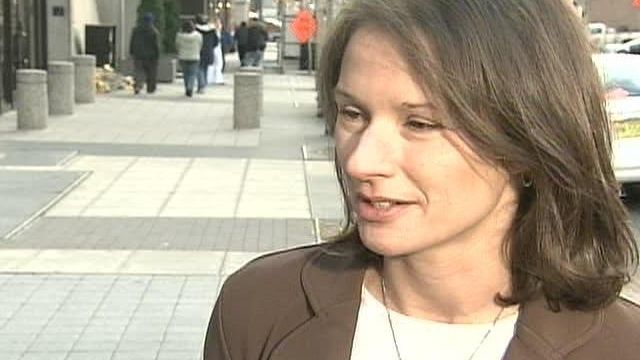Local News
State Must Satisfy Judge to Keep Executions on Schedule
A Wake County judge said Wednesday that he would block three scheduled executions if state officials cannot come up with a protocol for carrying out the death penalty without physicians.
Posted — UpdatedRALEIGH, N.C. — A Wake County judge said Wednesday that he would block three scheduled executions if state officials cannot come up with a protocol for carrying out the death penalty without physicians.
Superior Court Judge Donald W. Stephens said North Carolina wouldn't be able to comply with its death-penalty statute if a new rule prohibiting physicians from participating in executions is upheld. He gave Gov. Mike Easley and the Council of State until 10 a.m. Thursday to devise a new protocol for carrying out executions.
Without a new protocol, Stephens said he would issue an injunction to halt the three executions scheduled for the next two weeks until the legal issues could be resolved.
"Unless the governor and the Council of State have found that qualified personnel is not required — the participation by a licensed physician — this court cannot approve an execution," Stephens said.
Marcus Robinson is to be executed Friday for the 1991 murder of a Fayetteville teenager. James Edward Thomas is scheduled to be executed Feb. 2, and James Adoph Campbell is scheduled to be put to death on Feb. 9.
Attorneys for Robinson and Thomas asked Stephens to block the executions on the grounds that the state can't assure they would die without pain.
"We asked the court to look at that and to grant an injunction to give us some time to look at those questions, since one of those injections is scheduled for less than 48 hours, said Ann Groninger, the attorney for Thomas.
North Carolina uses lethal injection for executions, and state law requires that a physician be present when inmates receive the deadly cocktail.
But the North Carolina Medical Board last week approved a policy that prohibits physicians from participating in executions, saying doing so would violate the profession's ethics. Anyone violating the rule could lose his or her medical license.
Geoffrey Hosford, an attorney for Robinson, said the intent of law is to have a physician participating in executions. A ruling last April by U.S. District Judge Malcolm Howard in another death-penalty case said that the doctor must monitor vital functions during the execution, Hosford said.
State House minority leader Paul Stam said the current law should take precedent over any medical board policy.
"The medical society can't trump the decision of the elected members of the assembly who have decided that that is the appropriate punishment for premeditated deliberate murder," Stam said.
Tom Pitman, an attorney with the Attorney General's Office, said the law states that a physician simply must be present at an execution and sign the death certificate, which Pitman said would not violate the new Medical Board policy.
Other medical professionals, such as nurses and paramedics, are present to handle the execution, and the licensing boards for those groups have taken no public position on the execution issue, Pitman said.
But Robert Zaytoun, an attorney for death-row inmate James Edward Thomas, said the law didn't intend for the physician to be "a potted plant" and that the Medical Board policy creates a "moral and legal conundrum."
Stephens agreed with the inmates' lawyers, saying the state's argument doesn't make sense. Standing by at an execution creates "an awkward position for a medical professional," he said.
Thirty state lawmakers have sent a letter to Easley calling for him to suspend executions. They referred to states like Florida, where Gov. Jeb Bush issued a moratorium after a botched lethal injection.
• Credits
Copyright 2024 by Capitol Broadcasting Company. All rights reserved. This material may not be published, broadcast, rewritten or redistributed.






